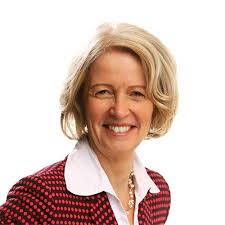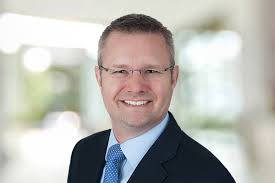
Technology pilots are underway at major financial firms this summer that are monitoring model risk in real time, providing “explainability” on artificial intelligence deployments, weeding out unintentional bias and applying new datasets to corporate-governance analytics.
These are some of the 40-plus projects that grew out of the annual New York FinTech Innovation Lab, a 10-year-old acceleration and mentoring program run by the Partnership Fund for New York City and Accenture. Other such labs or incubators have sprouted up around the world, including Accenture-initiated London and Asia-Pacific programs. This one boasts participation of 43 companies active in and around the financial capital of New York, including Bank of America, BlackRock, Goldman Sachs, JPMorgan Chase and UBS, as well as a dozen venture capital firms.
Since 2010, the pioneering New York lab has graduated 79 emerging financial technology companies, including 10 this year from an applicant pool of 200. The selectees establish relationships with established firms, gaining valuable market exposure and helping to overcome hurdles to adoption of their innovations.
Sign of the Times
In a sign of the financial industry's current priorities, five of this year's 10 graduates, announced in June, are risk- or compliance-focused.
David Treat, senior managing director at Accenture and co-chair of the New York FinTech Innovation Lab, says the selection process is driven by feedback from the institutions and guided by their demands and regard for innovation. “Certainly, in today's challenging environment, risk and compliance has increased in strategic importance,” he notes.

The 2020 lab graduates in those areas are: Arthur AI, with tools for avoiding fraud and other risks through real-time model monitoring; ClauseMatch, which offers document collaboration software to support regulatory compliance; DataFleets, using machine learning to analyze and gain insight from sensitive data without compromising individuals' data privacy; Sigma Ratings, which employs machine learning for automated risk benchmarking and monitoring of non-credit risks; and True Flood Risk, providing property flood-risk data for insurers and governments using AI and street-view imagery.
Also in the 2020 cohort are: Broker Buddha, a platform for independent insurance brokers and agents; Knoema, with data management technology for corporations and capital markets; SkyHive, an AI-based platform for labor management and re-skilling; and Summer, which helps student loan borrowers identify the best possible repayment plan for their financial situation.
These ventures join such New York lab alumni as Digital Asset Holdings, an early financial industry entrant in blockchain and smart contracts; Lenddo, which uses social networks and other alternative data sources to assess creditworthiness in underserved markets; and Virtualitics, an “artificial intelligence as a service” company specializing in data visualization.
More than $1.2 billion in capital has been raised by companies that came out of the program, including $110 million in Series D funding by digital identity management company Dashlane in 2019.
For Aon, one of the financial institution partners, “the FinTech Innovation Lab is a great source of innovative ideas and capabilities,” says Steve Petrevski, senior vice president and general manager of data and analytic services. “By bringing together an ecosystem with our senior business leaders, catalyzed by NYC entrepreneurs, we will identify solutions to fulfill our clients' strategic goals across risk, retirement and health.”
Applied AI
According to Alex Wenchel, co-founder of Arthur AI and a former head of AI development at Capital One Bank, “As decision models get more complex with the use of AI, machine learning and other advanced analytics, you need to increase the sophistication of your model monitoring as well.” The aim is to assess for model error, provide explanations for a model's decision-making, and to identify and prevent unintentional bias.

The Arthur AI platform provides this sort of advanced monitoring of risk and decision models in real time, Wenchel says, through a focus on a model's data inputs and outputs and by performing a statistical and analytical assessment to identify data patterns, data drift, anomalies or bad decision-making.
Sigma Ratings, meanwhile, describes itself as the first non-credit risk ratings agency, with a focus on financial firms in emerging markets. Its proprietary search engine and software platform speeds up the process of making sense of a counterparty's external data and governance practices by applying AI and machine learning analysis to the process.
It says it can review upwards of 100 non-financial factors - including an entity's associates and complex network of business partners - in near-real time, leading to assignment of a score.
“Understand the Network”
“We've had credit ratings for 120 years, and so it's only natural to now have more reliable coverage on the other side of risk - namely, a non-credit rating,” says Sigma Ratings CEO and co-founder Stuart Jones Jr., a former senior U.S. Treasury official.
Jones adds: “If you want to understand the real risks of your counterparty, you have to understand the network around it,” Jones says.
Notes co-founder Gabrielle Haddad: “This is the type of counterparty data that needs to be renewed on an ongoing basis,” allowing clients to learn - in a timely way - of financial partner behavior that might smack of a Wirecard-like governance scandal.
Looking ahead following completion of the 2020 New York FinTech Innovation Lab, the program's co-founder, Maria Gotsch, who is president and CEO of the Partnership Fund for New York City, believes that Wall Street's needs in 2021 will trend toward fraud prevention technology and tools to allow for safe and compliant engagement with remote workers and customers.
Gotsch notes, “Whereas people were dabbling with online sign-ups and engagement prior to COVID-19, a lot of that digital activity is now being front-loaded and accelerated.”
Katherine Heires is a freelance business journalist and founder of MediaKat llc.